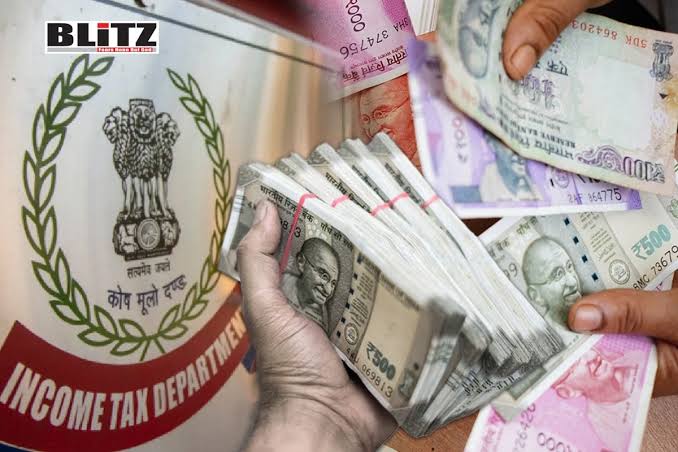India’s tax probe uncovers foreign-driven agendas in NGO funding

By Sonjib Chandra Das
A recent investigation by India’s Income Tax Department has brought to light troubling findings surrounding the operations of several prominent nongovernmental organizations (NGOs) within the country.
The probe, targeting five major NGOs with significant foreign funding links, has revealed what authorities describe as a coordinated effort to undermine India’s economic and development projects.
This investigation has sparked debate, raising concerns over foreign influence on domestic issues, particularly through financial channels.
The organizations under scrutiny include Oxfam, the Centre for Policy Research (CPR), Environics Trust, the Legal Initiative for Forest and Environment (LIFE), and Care India Solution for Sustainable Development.
The tax authorities have accused these NGOs of contravening the Foreign Contribution Regulation Act (FCRA), which regulates the inflow and use of foreign funds by specific organizations in India.
The probe stems from raids conducted by tax authorities in September 2022, followed by the release of extensive reports detailing their findings in 2023.
These reports consist of hundreds of pages of financial documents, email exchanges, board meeting minutes, and agreements that allegedly support the accusations against the NGOs.
The tax department has underscored that the majority of these NGOs rely heavily on foreign donations-75 percent of the funds for four of the five organizations reportedly came from foreign sources over a five-year period.
The crux of the allegations lies in the accusation that these NGOs, far from merely pursuing charitable or humanitarian goals, were working in concert to obstruct economic and development initiatives that are crucial to India’s national interests.
The tax department has argued that the NGOs were acting as vehicles for a broader foreign agenda, one allegedly aimed at undermining key Indian development projects.
One of the most prominent names to surface in this investigation is that of US billionaire George Soros. According to reports, Soros’ Open Society Foundation is a key financier of Oxfam, which has been under intense scrutiny in India.
Oxfam’s license to receive foreign contributions was revoked by New Delhi in 2022, with authorities claiming that the organization’s activities were in violation of FCRA norms.
George Soros has been a vocal critic of Indian Prime Minister Narendra Modi and his close ally, Gautam Adani, the chairman of the Adani Group, one of India’s largest conglomerates.
In a speech at the Munich Security Conference in 2023, Soros explicitly linked Modi and Adani, stating that “their fates are intertwined” and suggesting that challenges for the Adani Group could weaken Modi’s influence on India’s government.
The Bharatiya Janata Party (BJP), Modi’s political party, hit back, accusing Soros of attempting to destabilize India’s democracy through financial influence.
The tax investigation highlights the Open Society Foundation’s financial support for Oxfam as part of a broader network that allegedly includes efforts to stall projects linked to major Indian conglomerates such as the Adani Group and JSW Group.
According to authorities, protests against these projects were allegedly orchestrated by foreign-funded NGOs and were not organic movements but paid actions designed to halt development work.
The findings of the tax department have raised alarm due to their focus on NGOs’ alleged interference with development projects, particularly in the energy and infrastructure sectors.
The Adani Group, a key player in India’s energy sector, has long been at the center of environmental and political protests, with critics accusing the conglomerate of harmful environmental practices and unchecked corporate power.
However, the government sees such projects as crucial to India’s development and energy independence.The tax department claims that NGOs, particularly CPR and LIFE, have funded protests and legal battles aimed at blocking coal mining and other resource-based projects that are vital to the country’s economic growth.
CPR, a respected think tank whose FCRA license was revoked earlier this year, has faced allegations of mismanaging foreign funds, with tax authorities asserting that the organization’s primary focus was on legal activism rather than research.
The department alleges that CPR has been involved in funding litigation against energy projects, further stalling development efforts.
Environics Trust and LIFE have also been accused of using foreign funds to fuel local protests against infrastructure and environmental projects, adding to the concerns that foreign-driven agendas are interfering with India’s national growth strategies.
One of the most explosive aspects of the tax probe is the apparent involvement of the Open Society Foundation in backing investigations into the Adani Group.
The foundation is said to have supported the Organized Crime and Corruption Reporting Project (OCCRP), which earlier this year revealed allegations of stock market manipulation by the Adani conglomerate.
OCCRP, a global investigative platform known for its role in exposing financial corruption through projects like the ‘Panama Papers’ and ‘Pandora Papers,’ has been criticized by the Modi government for its involvement in the Adani case.
Indian authorities allege that such investigations are part of a broader effort to discredit the Adani Group and, by extension, Prime Minister Modi.
This suspicion is further fueled by Soros’ public statements about Modi and Adani’s intertwined fates, raising the stakes in the battle between the government and foreign-backed NGOs.
The revelations from this tax probe have wider implications for India’s national security and political landscape. The allegations that foreign-backed NGOs are attempting to subvert development projects and fuel political unrest have heightened concerns over the influence of external actors in shaping India’s domestic policies.
Critics argue that the investigation is part of a broader crackdown by the Modi government on dissent and civil society.
However, supporters of the probe maintain that it is necessary to protect India’s sovereignty from foreign interests that do not align with the country’s developmental goals.
The findings have undoubtedly put the spotlight on foreign funding of NGOs in India and raised questions about the balance between foreign philanthropy and national sovereignty.
As the investigation continues, it is likely to deepen the debate over the role of foreign-funded NGOs in shaping India’s political and economic future.




